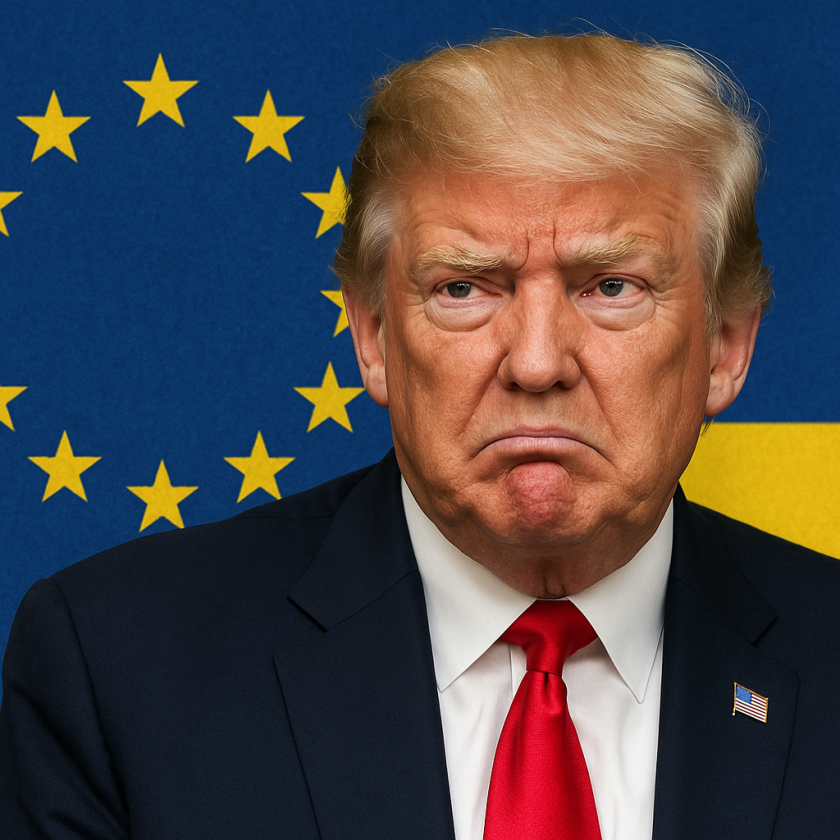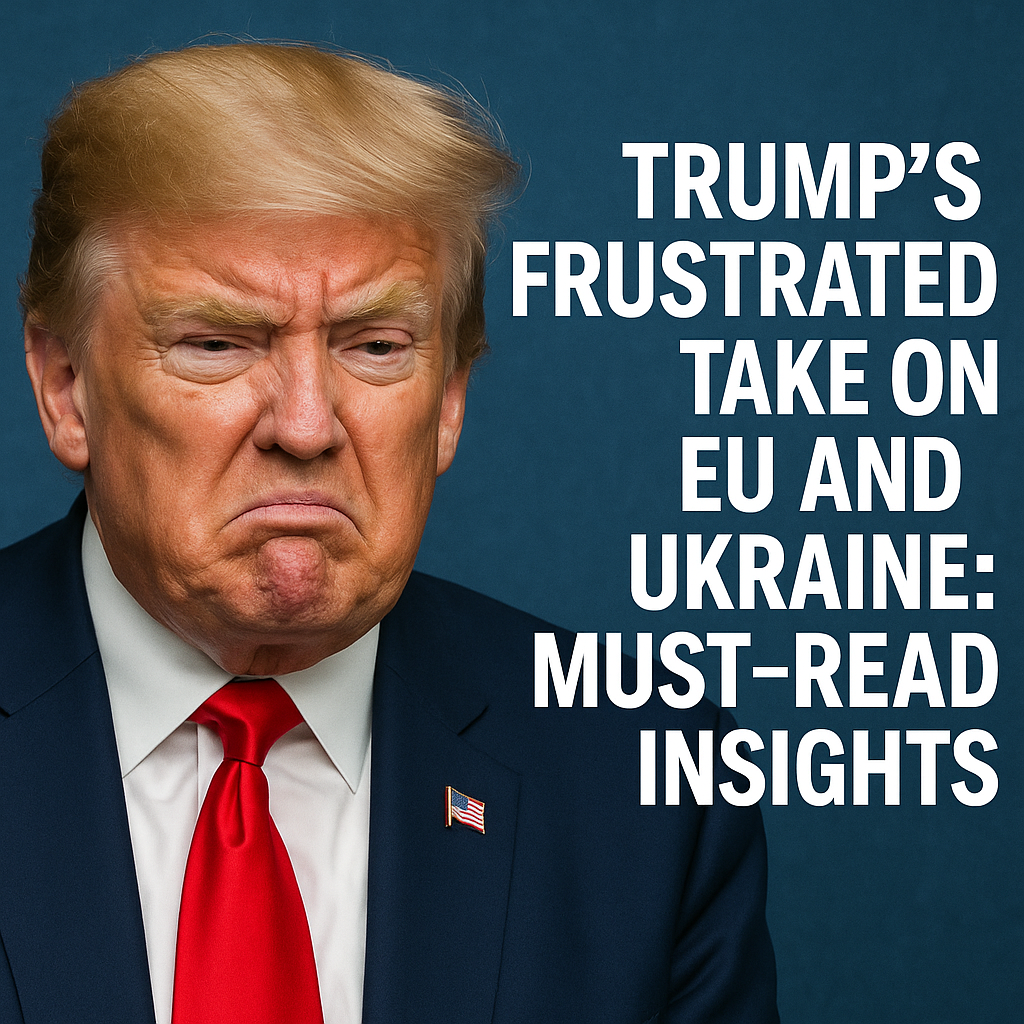Trump’s Frustrated Take on EU and Ukraine: Must-Read Insights
Trump’s Frustrated Take on the EU and Ukraine: Must-Read Insights
Donald Trump’s recent statements regarding the European Union (EU) and Ukraine shed light on his complicated relationship with American foreign policy, especially in relation to Europe and conflict resolution. Over the years, Trump’s views have evolved, reflecting both frustrations and specific political agendas.
Trump’s Criticism of the EU’s Role in Ukraine

Trump’s frustrations primarily stem from what he perceives as an insufficient commitment from European nations in supporting Ukraine against Russian aggression. In various interviews, he has criticized the EU for not providing adequate military or financial support that, according to him, should be shared more equitably among NATO allies. His perspective was made particularly clear when he stated that the EU is “cozying up to Russia,” beyond just energy dependence, indicating a strategic naivety that he feels could compromise Ukraine’s sovereignty.
He argues that the U.S. is shouldering too much of the burden in supporting Ukraine, effectively implying that European nations lack a sense of urgency. Trump’s comments suggest that he believes the U.S. is a “mugged” nation in an international context, where others fail to contribute their fair share to collective defense operations.
Divergent Perspectives on European Contributions
Responses from various quarters illuminate a more nuanced picture. Some analysts argue that European nations have indeed ramped up their contributions, particularly since the start of the conflict in Ukraine. Countries like Germany and France have increased their military aid and financial support significantly. However, critics of Trump assert that even though contributions have risen, they remain inconsistent compared to U.S. levels.
For instance, a report indicated that Germany’s military support is on the rise—notably sending weapons and additional funds. Still, skeptics like Trump contend that these efforts are merely reactive, lacking the robust commitment needed to effectively combat Russian advances. Furthermore, Trump’s rhetoric garners mixed responses: while some view it as a clarion call for increased action, others perceive it as a simplistic framing of a complex geopolitical issue.
The Role of U.S. Leadership and Future Implications
Trump’s take on the EU and Ukraine highlights broader concerns about U.S. leadership on the world stage, especially in light of deteriorating international relations. His straightforward criticism of the EU injects urgency into the dialogue around American foreign policy, but it also raises questions about the sustainability of U.S. leadership if future administration strategies differ significantly.
In his characteristic style, Trump has invoked the idea that America’s robust support of Ukraine is both a strategic and moral obligation, yet this layered complexity tends to get overshadowed by his frustrations with European allies. This dual focus on both support and criticism can lead to a lack of cohesion in foreign policy messaging, potentially alienating allies that might feel targeted or underappreciated.
The Future of U.S.-EU Relations
As the situation unfolds, a crucial question emerges: How will the dynamics of U.S.-EU relations evolve, especially with an eye on Ukraine? The concerns that Trump raises may resonate with a portion of the electorate, particularly those who prioritize national expenditure and question the effectiveness of NATO alliances. On the flip side, many policymakers advocate for active American involvement to uphold transatlantic partnerships, arguing that the collaborative defense is mutually beneficial.
This tense interplay between solidarity and grievance not only illustrates Trump’s frustration but also serves as a litmus test for future U.S.-EU engagements. The complexities involved in Ukraine—ranging from energy policies to military strategies—suggest that a simple assessment of contributions will no longer suffice.
Concluding Thoughts
Trump’s observations about the EU and Ukraine are steeped in genuine frustrations with perceived inequities in global support efforts. His critiques reflect a growing sentiment among certain factions that demand accountability and action from allied nations. However, these views also brush against a more complex framework of international diplomacy and alliances, wherein the expectations may not align neatly with the realities on the ground.
As the geopolitical landscape continues to evolve, the nuances of these relationships will become increasingly important. Trump’s frustrations might be a rallying cry for some, but they also underscore the multifaceted challenges the U.S. faces in maintaining productive, supportive, and balanced relationships with its European partners. The need for constructive engagement has never been more vital, suggesting that grievances should be tempered with collaboration, lest they derail cooperative efforts that could serve to fortify global stability, particularly in volatile regions like Ukraine.






































